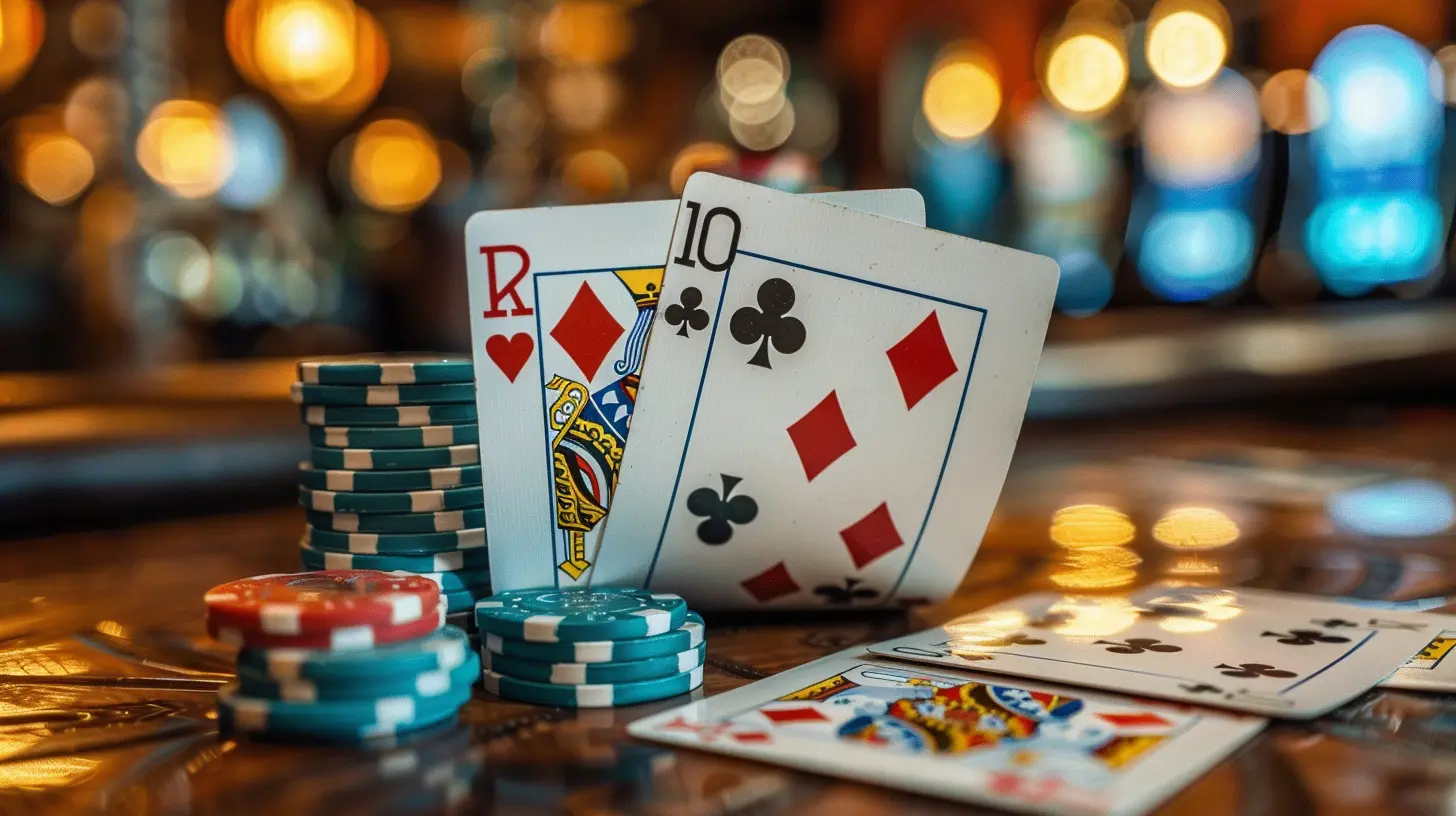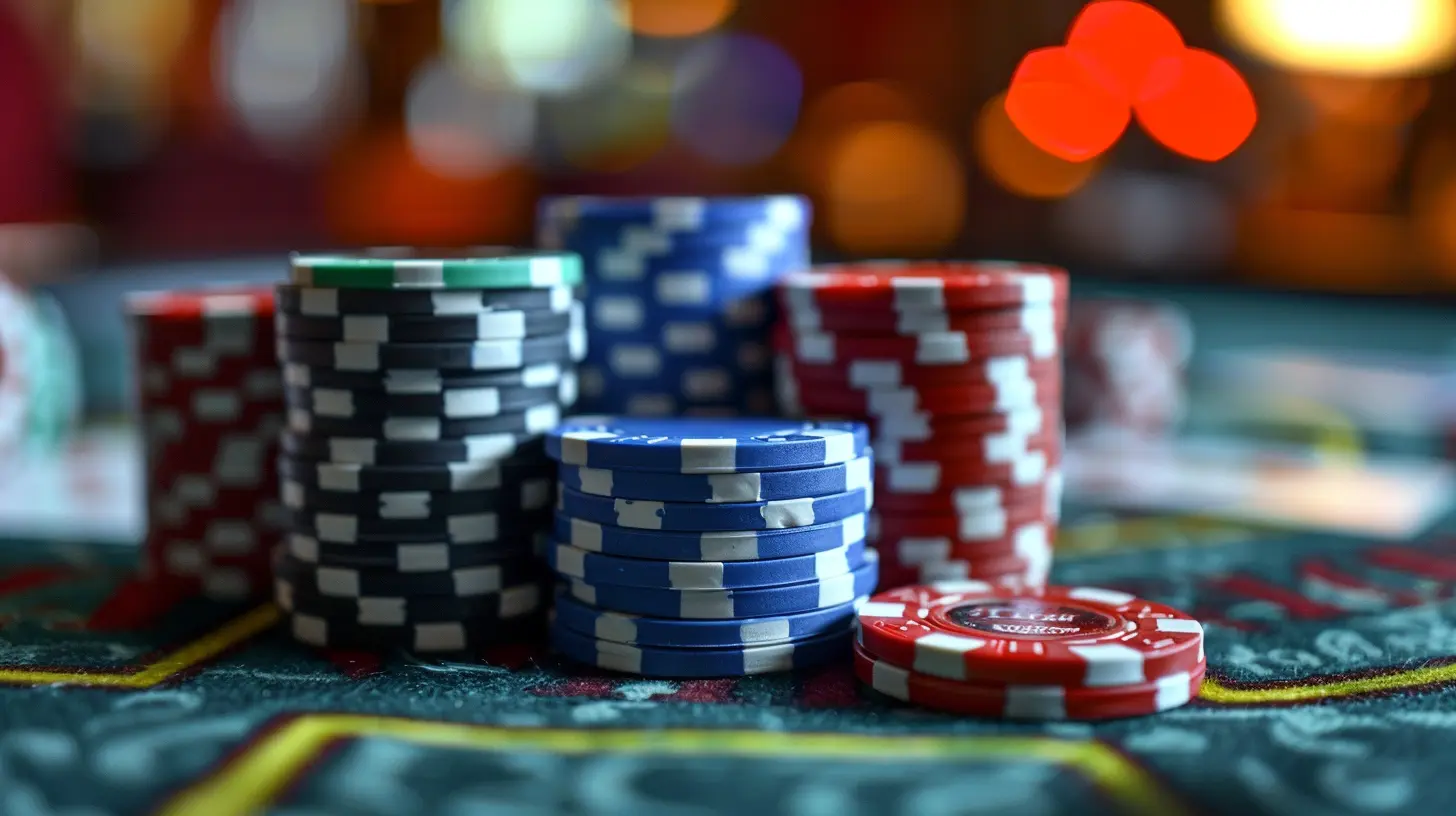Strategies to Dominate Your Next Poker Night
7 August 2025
Whether you're gearing up for a friendly poker night with your buddies or preparing to outwit your co-workers at the table, having a game plan can make all the difference. Playing poker is not just about luck; it's a skill-based game that blends strategy, psychology, and a touch of audacity. So, what separates the champions from the casual players? It’s not just fancy bluffs or expensive chips—it’s strategy.
Let’s dive into some simple yet powerful strategies to help you dominate your next poker night. By the time you’re done reading, you’ll be ready to up your game and leave everyone at the table asking, "How the heck did they do that?"
1. Understand the Rules Inside Out
This one might sound obvious, but you’d be surprised how many people skip this step. Poker has multiple variations—Texas Hold’em, Omaha, Seven-Card Stud, and more. Are you clear on the differences? Do you know how hand rankings work? What beats what? (Spoiler: a flush beats a straight. Don’t mix this up!)If you’re playing Texas Hold’em, for instance, focus on memorizing key hands, from a Royal Flush down to the humble high card. The last thing you want is to fold a winning hand or overplay a losing one because you didn’t fully understand the strength of your cards. Knowledge is power, and in poker, it’s non-negotiable.
2. Start Tight, Play Aggressive
One of the most common beginner mistakes is trying to play too many hands. Let me tell you this—poker isn't about quantity; it’s about quality. The strategy here is simple: start by playing tight (stick to strong hands early on) and gradually become more aggressive as the game progresses.Think of it as building your reputation. Early in the game, you want others to see you as conservative and cautious. Then, when you start making bold moves later, your opponents will second-guess their instincts. It’s like being a cat that pounces only when the prey moves close—you’ll strike more effectively.
3. Pay Attention to Position
Your position at the table can make or break your hand. Sitting in an early position? You’re at a disadvantage because you’ll be among the first to act, giving others a chance to react to your play. If you’re in a late position (closer to the dealer), you get to see what everyone else does before making your move. This advantage is priceless.Use your position wisely. In late positions, you can afford to play more marginal hands because you’ll have more information to work with. On the flip side, be cautious in early positions—it’s better to stick to premium hands like aces, kings, or queens.
4. Master the Art of Bluffing (But Don't Overdo It)
Ah, bluffing—the most glamorous part of poker, and yet, the quickest way to crash and burn if you overdo it. The key is to bluff selectively and situationally. Think of bluffing as salt in a dish; a little goes a long way, but too much ruins the recipe.When should you bluff? Timing is everything. Bluff when you’re in a position of strength or when your story adds up. For instance, if the flop comes out as 10-J-Q of the same suit, your opponents might believe you have a flush even if you don’t. Bluff sparingly, and mix it up with genuine strong hands to keep everyone guessing.
5. Read Your Opponents Like a Book
Poker is as much about reading people as it is about playing your cards. Watching your opponents can give you crucial insights into their strategies. Are they leaning forward when they have a strong hand? Do they fidget when bluffing? These subtle "tells" can guide your decisions.But don’t stop there—take mental notes of their betting patterns. Do they always make large bets with strong hands? Do they only call when they’re unsure? The more you observe, the better you’ll understand their tendencies. And once you have them figured out, you can turn their habits against them.
6. Stay Unpredictable
If your strategy becomes too obvious, you’re toast. Mix it up! Sometimes, call with a medium hand instead of folding outright. Sometimes, fold a strong hand (just to confuse the table). Your goal is to keep your opponents on their toes.Think of this like playing rock-paper-scissors. If you throw the exact same move every time, people will catch on. When you mix unpredictability with solid strategy, you become nearly impossible to read. And that’s the kind of player everyone fears.
7. Know When to Fold 'Em
Kenny Rogers wasn’t kidding—you really do need to know when to hold 'em and when to fold 'em. One of the hardest things in poker is deciding to fold a hand you want to play. Maybe you’re tempted by the possibility of drawing a straight or flush, but the odds aren’t in your favor.Here’s a rule: if the pot odds don’t justify the risk, walk away. Folding is not a sign of weakness—it's a sign of discipline. Plus, folding gives you more chips to wield in future rounds.
8. Manage Your Bankroll Like a Pro
If you want to dominate the poker table, you need to play smart with your chips. Avoid going all-in on a whim or making reckless bets because you’re “feeling lucky.” Have a clear limit in mind. For instance, set aside a specific budget for the night and don’t go beyond it.Think of your chips as a marathon, not a sprint. If you lose all your chips too early, you’re out of the game, and nobody ever dominated a poker night from the sidelines.
9. Play the Player, Not the Cards
This is one of the secrets that separates seasoned players from amateurs. Poker is not just about the cards in your hand; it’s about the players across the table. By observing how your opponents play, you can make educated guesses and adjust your strategy accordingly.For instance, if someone has been folding every hand and suddenly makes a big raise, they probably have something strong. On the other hand, if a loose player suddenly hesitates, they might be bluffing. Use these dynamics to your advantage—it’s like solving a puzzle where every move matters.
10. Stay Cool Under Pressure
Poker can be intense. Maybe you’re down to your last few chips, or maybe someone just pulled off an audacious bluff against you. Save the drama for the movies—the best poker players are cool as a cucumber, no matter the situation.When you stay calm, you’re less likely to make impulsive decisions. Even if you’re having a bad streak, keep your head in the game. Poker is a game of ups and downs, and patience can often help you turn things around.
11. Practice, Practice, Practice
Like with anything else in life, practice makes perfect. Before your next poker night, spend some time brushing up your skills. You can play free poker games online or with friends to get more comfortable with the flow of the game.The more you practice, the more confident you’ll feel. And when you’re confident, you’re unstoppable.
Wrapping It Up
Poker is a beautiful blend of skill, psychology, and chance. While you can’t control the cards you’re dealt, you can control how you play them. By focusing on these strategies—understanding the rules, mastering your position, bluffing wisely, and reading your opponents—you’ll be in a much better position to dominate your next poker night.Remember: Poker isn’t just a game of hands; it’s a game of minds. So, grab your chips, shuffle the deck, and get ready to play smarter, not harder!
all images in this post were generated using AI tools
Category:
Card GamesAuthor:

Brianna Reyes
Discussion
rate this article
2 comments
Brittany McAnally
This article offers valuable insights into the nuances of poker strategy. It's a great reminder that understanding opponents is just as crucial as mastering the cards.
February 15, 2026 at 3:32 PM
Zeke Ruiz
Master the table, anticipate your rivals, and unleash your inner champion tonight!
August 23, 2025 at 3:04 PM

Brianna Reyes
Thank you! Mastering strategy is key to success at the table. Good luck!


